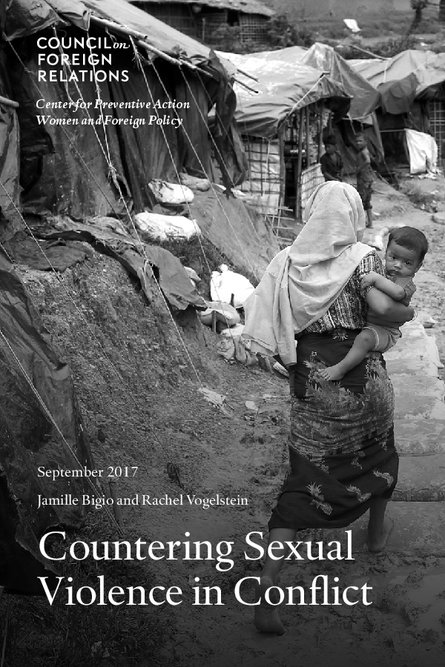
The victims of today’s armed conflicts are more likely to be civilians than soldiers. Armies and armed groups often subject noncombatants—particularly women and children—to conflict-related sexual violence, such as rape, sexual slavery, and forced marriage. Despite international recognition of this devastating abuse as a crime against humanity, sexual violence continues to plague conflicts from the Democratic Republic of Congo (DRC) to Syria. This practice has also proliferated among extremist groups, including Boko Haram in Nigeria and the self-proclaimed Islamic State in Iraq and Syria. Additionally, sexual violence has tarnished the operations of peacekeepers charged with protecting civilians, thereby undermining the integrity and effectiveness of international peacekeeping institutions across the globe. Sexual violence in conflict is not simply a gross violation of human rights—it is also a security challenge. Such violence has consequences that increase the costs of armed conflict, rendering its management more difficult. Wartime rape fuels displacement, weakens governance, and destabilizes communities, thereby inhibiting postconflict reconciliation and imperiling long-term stability. When committed by troops, it can represent a lack of discipline associated with weak command and control, which makes military units less effective in advancing their mission. Yet current security-sector efforts to address sexual violence in conflict are inadequate, plagued by insufficient training for peacekeepers, limited accountability through national and international judicial systems, and resource gaps.